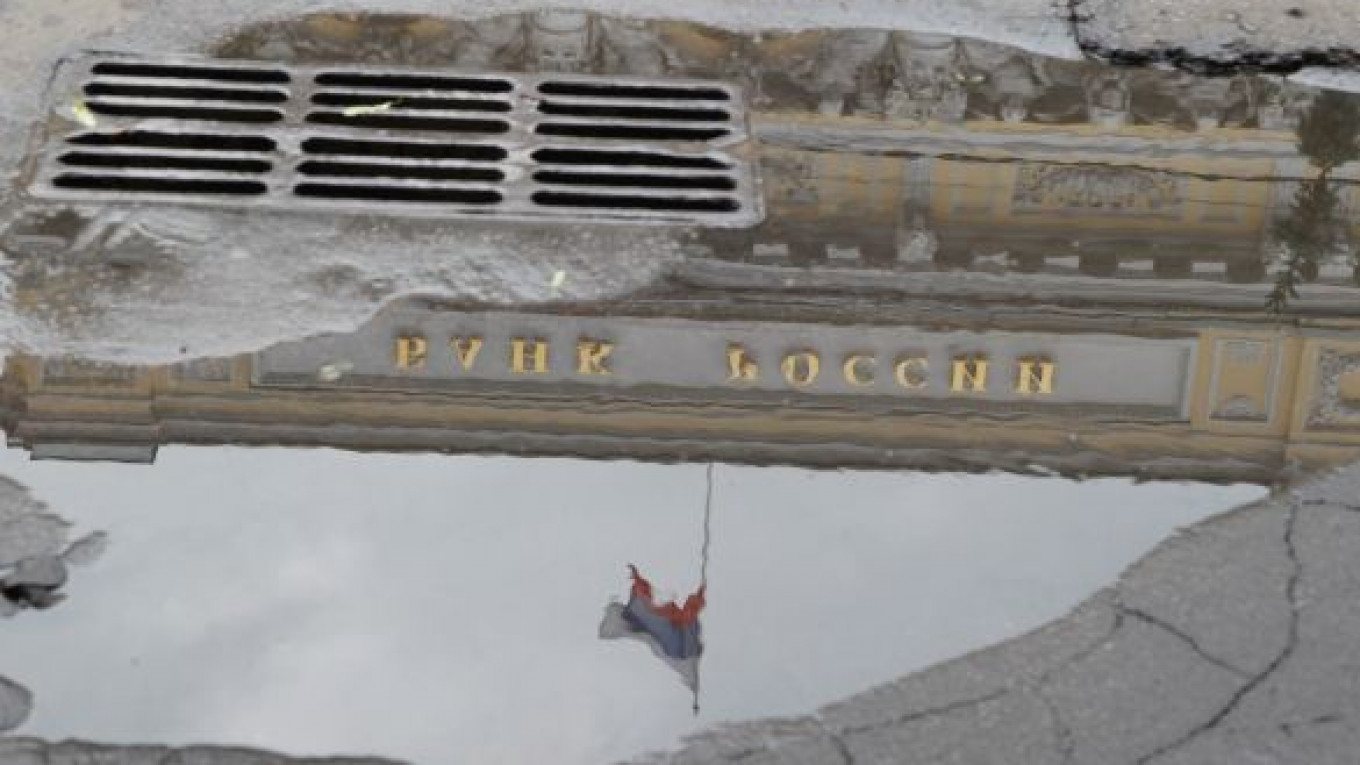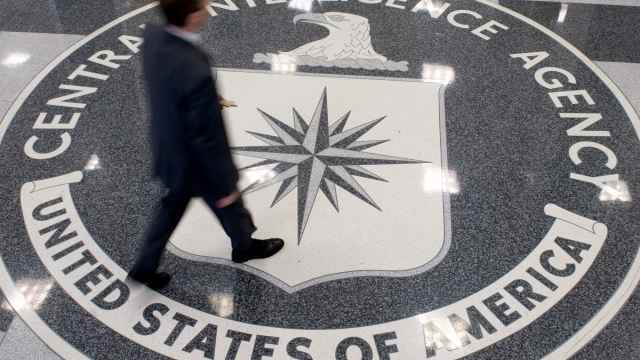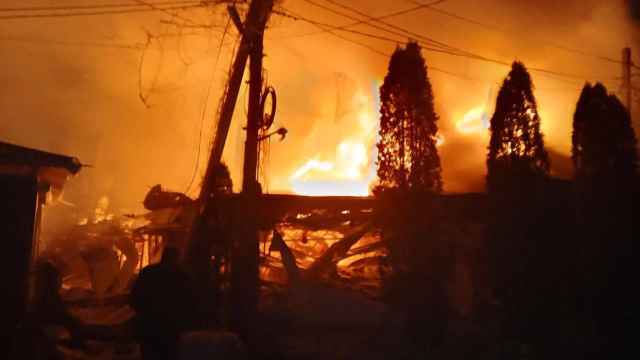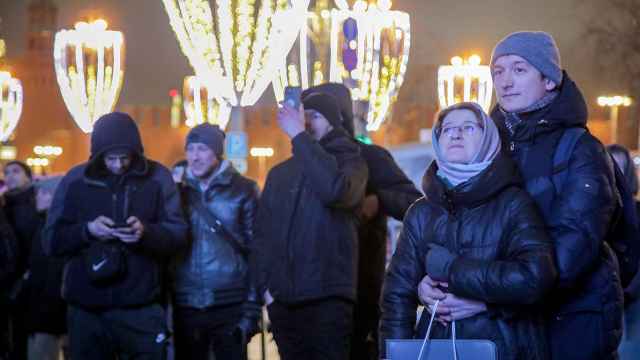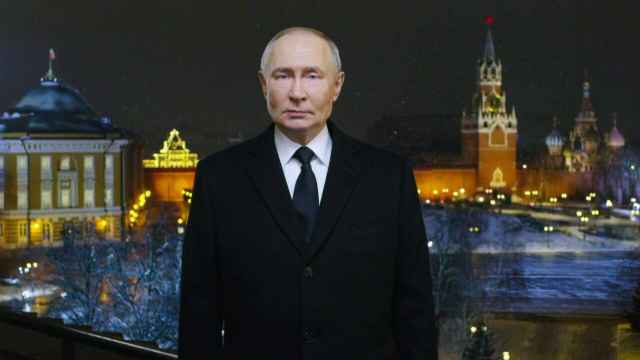The Central Bank has sent the strongest signal so far this year that policy-tightening may lie ahead if inflation risks from food prices increase, and it kept its main interest rates unchanged for now.
The Central Bank, which has kept monetary policy unchanged since cutting some lending rates in December, said it did not see an increased risk of slowing economic growth at the moment as domestic demand remains robust.
It sounded more concerned about inflation, which is nearing 6 percent, the top of the bank's target range.
"The worsening situation in the global and Russian food markets, as well as estimates of harvests of main agricultural crops in the current year is an important source of inflationary risks, particularly given the influence of these factors on inflation expectations," the bank said in a statement Friday after its monthly meeting.
For the first time this year, it refrained from commenting on whether it deemed current rates to be at an appropriate level in the near term, which analysts read as a clear indication that monetary tightening is in the pipeline.
"The Central Bank is definitely more committed now than before to start the path of policy-tightening," said Alexander Morozov, chief economist for Russia at HSBC.
The bank kept as expected the fixed one-day repo rate, the de facto ceiling for the money market, at 6.25 percent. It held the overnight deposit rate, a floor for interbank rates, at 4 percent.
The more symbolic refinancing rate, the cost of borrowing overnight from the Central Bank, stayed at 8 percent.
That was broadly as expected, although analysts had seen some risk that the bank could make a surprise move on policy, given the growing supply-led pressure on prices.
Polling last month predicted a rise in rates before the end of the third quarter.
The International Monetary Fund, which forecasts that Russia's economy will grow about 4 percent this year and next year, this month urged Russia to tighten monetary policy to guard against the risk of overheating and bear down on inflation.
Prices of consumer goods in Russia had risen 5.7 percent year on year as of Aug. 6, making the Central Bank's aim of keeping full-year inflation down to 5 to 6 percent more difficult.
"When making [future] decisions, the Central Bank will focus on the medium-term targets for inflation and the assessment of economic growth prospects as well as the dynamics of inflation expectations," the bank said in its statement.
"One gets the feeling that there is no final decision yet whether to raise rates or not," Dmitry Polevoi, an economist at ING in Moscow, said. "That is, [the Central Bank] is clearly preparing the stage, but there is no clear signal, as uncertainty remains: how bad will the harvest be, by how much food prices will rise and how it will affect inflation expectations and the core inflation."
Morozov believes the Central Bank made a mistake by holding rates. He said inflation is likely to exceed 6 percent next month.
And although the recent spike in inflation comes from higher food prices, which are beyond the Central Bank's control, rather than rising money supply, which the bank can mitigate, raising rates marginally could lower inflation expectations, he said.
This, in turn, could tame increases of real prices.
"[The decision] puts the Central Bank to a certain extent behind the curve rather than ahead of the curve," Morozov said.
Moreover, he added, the wait-and-see approach the Central Bank adopted Friday somewhat discredits the bank's goal to shift its main monetary policy focus from controlling the ruble exchange rate to targeting inflation.
The bank widened the ruble's trading band by one ruble last month, aiming to increase currency flexibility, which will allow it to cut down on forex interventions.
"From the credibility perspective, it would have been more advisable to raise rates now rather than in September," Morozov said.
Not everyone agrees.
"We believe raising policy rates in the current environment is premature, as local lending remains quite expensive, thus limiting investments and growth," an analyst at Barclays wrote in a note prior to Friday's meeting.
A Message from The Moscow Times:
Dear readers,
We are facing unprecedented challenges. Russia's Prosecutor General's Office has designated The Moscow Times as an "undesirable" organization, criminalizing our work and putting our staff at risk of prosecution. This follows our earlier unjust labeling as a "foreign agent."
These actions are direct attempts to silence independent journalism in Russia. The authorities claim our work "discredits the decisions of the Russian leadership." We see things differently: we strive to provide accurate, unbiased reporting on Russia.
We, the journalists of The Moscow Times, refuse to be silenced. But to continue our work, we need your help.
Your support, no matter how small, makes a world of difference. If you can, please support us monthly starting from just $2. It's quick to set up, and every contribution makes a significant impact.
By supporting The Moscow Times, you're defending open, independent journalism in the face of repression. Thank you for standing with us.
Remind me later.


